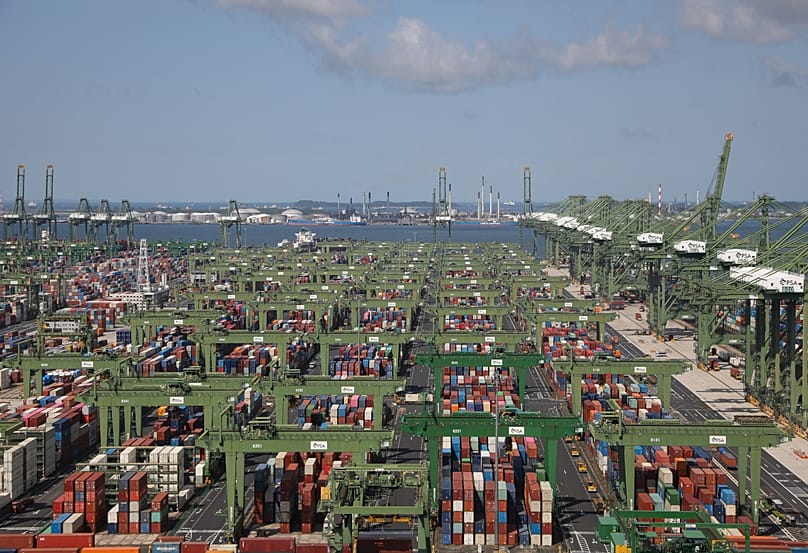COP30: EU backs global carbon market alliance to crack down on CO2 emissions

The European Union and Brazil launched an appeal calling on other nations to recognise carbon pricing as a pragmatic way to cut emissions and fund the green transition, as world leaders gather at the COP30 United Nations climate summit.
The global bid aims to form a coalition of countries willing to raise funds from carbon pollution and invest them in clean technologies to help cut greenhouse gas (GHG) emissions.
The revenue would help countries to implement their national climate plans and continue working to deliver on the Paris Agreement adopted 10 years ago at COP21.
The declaration, unveiled on Friday as an output of the pre-COP30 leaders meeting, is a symbolic way to encourage world nations to develop strategies and establish carbon markets akin to the EU's emissions trading scheme ETS, in place since 2005.
Under the ETS, the EU makes companies pay for the emissions they produce. The bloc's carbon pricing system has slashed GHG emissions by 50% relative to 2005 and generated over €250 billion in revenue, according to the European Commission.
Commission President Ursula von der Leyen confirmed the bloc's support for the declaration — endorsed by the likes of France, Germany, the UK, China and Brazil — and recognises carbon markets as a driver of climate action.
"Carbon pricing has become a central tool to reduce greenhouse gas emissions with a strong business case for the economy and for the people. We want to work closely with Brazil and with many like-minded partners on putting a price on carbon," von der Leyen said.
Advocates of this mechanism argue that having a credible carbon market in place would give investors the certainty to unlock financing for projects that cut or capture GHG emissions, such as reforestation, renewable energy, or low-carbon industries.
Critics say that putting the spotlight on carbon pricing could divert attention from real emissions-cutting, like investing in restoring natural carbon sinks, like forests and oceans.
Carbon pricing jurisdictions
Around 55 national jurisdictions currently implement carbon-pricing initiatives — either carbon taxes or emissions-trading systems accounting for around 28% of global GHG emissions, World Bank data reveals.
These represent half of global emissions from the power and industrial sectors.
World Bank Senior Managing Director Axel van Trotsenburg hailed carbon pricing as a "powerful tool" that can help countries cut emissions, raise domestic revenues in tight fiscal environments and boost green growth and job creation.
"Carbon credit markets can also help mobilise private capital and channel funds to development priorities," Trotsenburg said.
Mathilde Mignot, group director, nature & technology-based solutions at Schneider Electric Advisory Services, and an advocate of carbon credits as a "credible climate tool," said global decarbonisation demands unprecedented investment, with developing countries alone needing $1 trillion annually by 2030.
“Carbon credits offer a proven mechanism for organisations to support verified climate action while building strategic value,” Migbot said.
But environmental groups remain sceptical of carbon taxation and have spoken out against it in the run-up to COP30.
“Carbon markets are a new way for billionaires and corporations to extract more wealth from our territories," said Anderson Amaro, a member of Brazil's Small Farmers' Movement and the Latin American Coordination of Rural Organisations.
"They win twice, with permission to expand activities related to fossil fuels and with profits from carbon, water and biodiversity offset markets," Amaro concluded.


